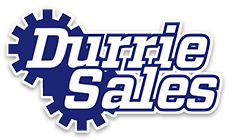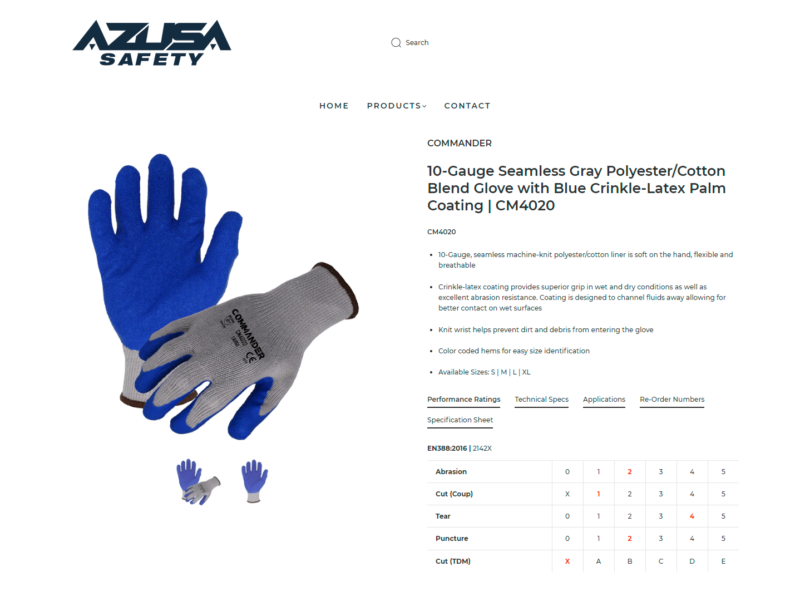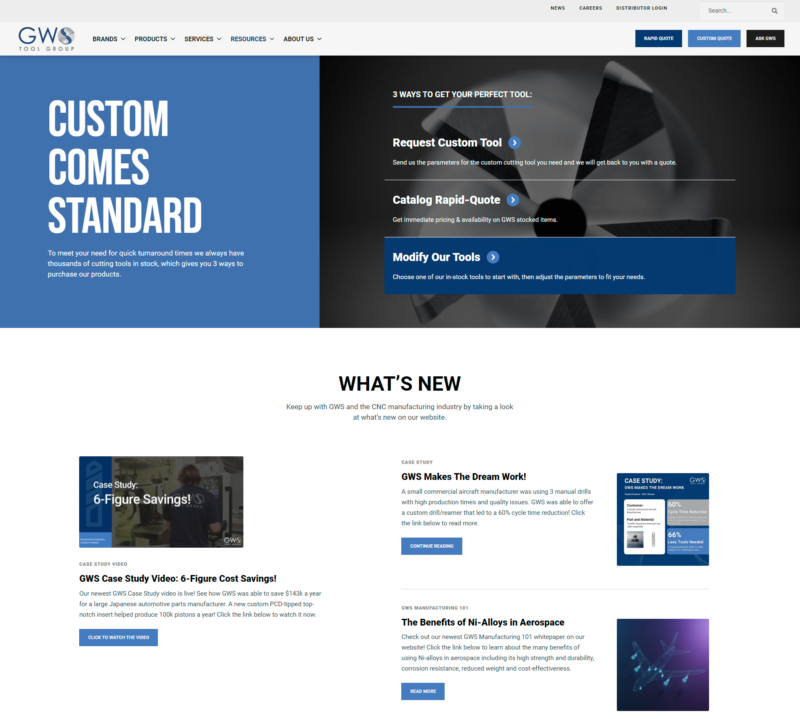Just as a well-oiled machine relies on all its components working together in perfect harmony, your business thrives when it aligns seamlessly with your vendors and partners, allowing you to effectively collaborate with your industrial distributor. The ability to work closely with your distributor is crucial for ensuring smooth product flow, maximizing sales, and achieving mutual goals.
Read on to learn valuable insights on how to enhance collaboration with your industrial distributor.
1. Make it easier for your industrial distributor to move products
To encourage your industrial distributor to sell more of your products, you need to make it easy for them to do so. One crucial aspect is brand name recognition. Consider how well you’re marketing your products and the level of familiarity end users have with your brand. When end users actively seek out your products, distributors are more inclined to stock them — because they know there’s already a demand.
Educating your industrial distributor about the unique qualities of your products is also essential. They need to understand the benefits, features, and specifications of your products so they can effectively communicate these things to buyers. By sharing spec sheets and providing detailed information, you enable your distributor to present your products in the best possible light. Highlight the problems that your products solve for end users, emphasizing how they meet their specific needs and offer value.
Consider creating a resource section on your website dedicated to helping your distributors succeed. A dedicated resource section centralizes and organizes product collateral, case studies, technical documents, product photos and more for your distributors. It streamlines communication, and ensures that your distributors have access to the same accurate and up-to-date information whenever they need it.
Two manufacturers that do a great job with their resource sections are AZUSA Safety and GWS Tool Group. AZUSA Safety does a tremendous job providing detailed project information on their website, and GWS Tool Group publishes some of the best case studies in the business.
Also consider offering financial incentives to motivate your industrial distributor. For instance, offer credits or rebates when your distributor achieves a certain level of sales. This not only shows your appreciation for their efforts, but it also creates a sense of competitiveness and motivation to sell your products over those of your competitors. Financial incentives are a powerful tool to sweeten the pot and encourage your distributor to prioritize selling your products.
2. Engage with your industrial distributor to understand their challenges
As a manufacturer, you must recognize that your industrial distributor faces their own unique challenges. To build a strong collaborative relationship, you must establish mutual trust and understanding. To arrive there, actively engage with your distributor and participate in the sales process together.
Remember, you’re all part of the same team, working toward a common goal, so it’s vital to ensure that everyone is rowing in the same direction.
Rather than imposing strict directives on your distributors, it’s more effective to share your goals and aspirations with them. Involve them in the decision-making process and ask for their input on how to achieve these goals.
By actively listening to their ideas and perspectives and being flexible with your approach, you open the door to innovative solutions that you haven’t considered. Distributors often have valuable insights and experiences from working closely with end users. More importantly, they may understand the specific dynamics of their market better, too. Collaborating with them allows you to tap into their expertise and develop successful tactics and strategies together.
Remember that building a strong relationship with your industrial distributor involves two-way communication and shared objectives. Be receptive to their feedback, suggestions, and concerns. By fostering an environment of collaboration and trust, you create a platform for productive discussions and a fruitful partnership. Embrace the opportunity to learn from each other and find mutually beneficial ways to navigate the challenges that arise in the marketplace.
3. Invest in your relationships with your distributors
Once you’ve engaged with your industrial distributor and taken the time to listen to their needs and challenges, it’s time to take decisive action. Being responsive goes beyond passive acknowledgment — it requires actively seeking solutions, sharing your knowledge about the marketplace and customer trends, and offering assistance without being prompted. The key idea here is being proactive. Take a proactive approach to demonstrate your commitment to the partnership and to show you’re invested in its success.
This brings us, naturally enough, to the sensitive topic of lead generation. Some distributors (perhaps yours) get protective of their customer (end-user) relationships because they fear manufacturers will work around the distributor and sell directly to the customer. This fear often means that manufacturers begin working with distributors from a position of distrust.
One of the best ways that manufacturers can reinforce trust is to pass along all leads that the manufacturer receives. Many old-school manufacturers scoff at this, of course (“drumming up leads is why I’m paying the distributor!”), but this mindset just exacerbates the mistrust. So, go ahead. Show your distributors that you care about their success. You will ultimately build a much stronger relationship.
Taking proactive action is as simple as picking up the phone and checking in with your distributors. If they’re engrossed in their day-to-day operations, they might not think to reach out to you. By initiating the conversation, you create an opportunity for them to share valuable insights and feedback. Proactivity fosters a culture of open communication and ongoing collaboration, making your relationship with the distributor more than just a transactional exchange.
One way to make sure this happens is to establish a regular schedule for this outreach. Book regular monthly or quarterly calls, or even an annual on-site visit. Ensure that you and your distributors openly communicate on metrics, too. Ask your distributors what metrics are helpful for them to know, and then collaborate to build a scorecard to track those metrics together.
Be attentive to their concerns, challenges, and feedback. Stay informed about the latest market trends and customer preferences, and share this knowledge with your distributor. By equipping them with relevant information, you empower them to make informed decisions and better serve their customers.
Also, be proactive in identifying areas where you can provide additional value. Offer training sessions, marketing materials, promotional campaigns, catalogs, or other resources (both online and offline) that enhance their selling capabilities. Stay attuned to their evolving needs, and adapt your approach accordingly.
4. Lean on your sales team for valuable market intelligence
Your sales team is a valuable asset when it comes to gaining market intelligence. They possess a unique perspective on the market and customer behavior, regardless of whether they’re in-house salespeople or independent manufacturers’ representatives.
Their role is to observe trends, gather information, and interact directly with customers, providing valuable insights that you and your distributor might have overlooked. Ask them more questions, and listen to their answers! By leveraging the ideas of your sales team, you bridge any knowledge gaps that exist within your organization — and collaborate more effectively with your industrial distributor.
To maximize the potential of your sales team’s market intelligence, foster open communication and knowledge sharing. Encourage regular discussions, team meetings, and brainstorming sessions where your sales team shares their ideas and observations with your distributor. This exchange of information facilitates a deeper understanding of market trends, customer behavior, and competitive landscapes.
Leverage technology and data analytics tools to enhance the market intelligence capabilities of your sales team. By utilizing advanced analytics and customer data, you gain a deeper understanding of customer preferences, buying patterns, and emerging market trends. This data-driven approach empowers your sales team to provide more accurate and targeted recommendations to your industrial distributor, enabling them to make better stocking decisions.
Final thoughts
Collaborating effectively with your industrial distributor is essential for achieving growth and success in today’s competitive business landscape. From making it easier for your industrial distributor to move products to being responsive to your industrial distributors’ needs, there are many ways to effectively collaborate with your chosen distributor.
If you want a partner who makes your business and sales objectives a reality, look no further than Durrie Sales. For over 80 years, we’ve been helping businesses in the industrial manufacturing industry build their sales pipeline. Our extensive industry knowledge, network, and sales expertise allow our customers to drive revenue and expand market reach.
Learn more by reading Outsourcing Sales with an IMR: A Manufacturer’s Guide.




